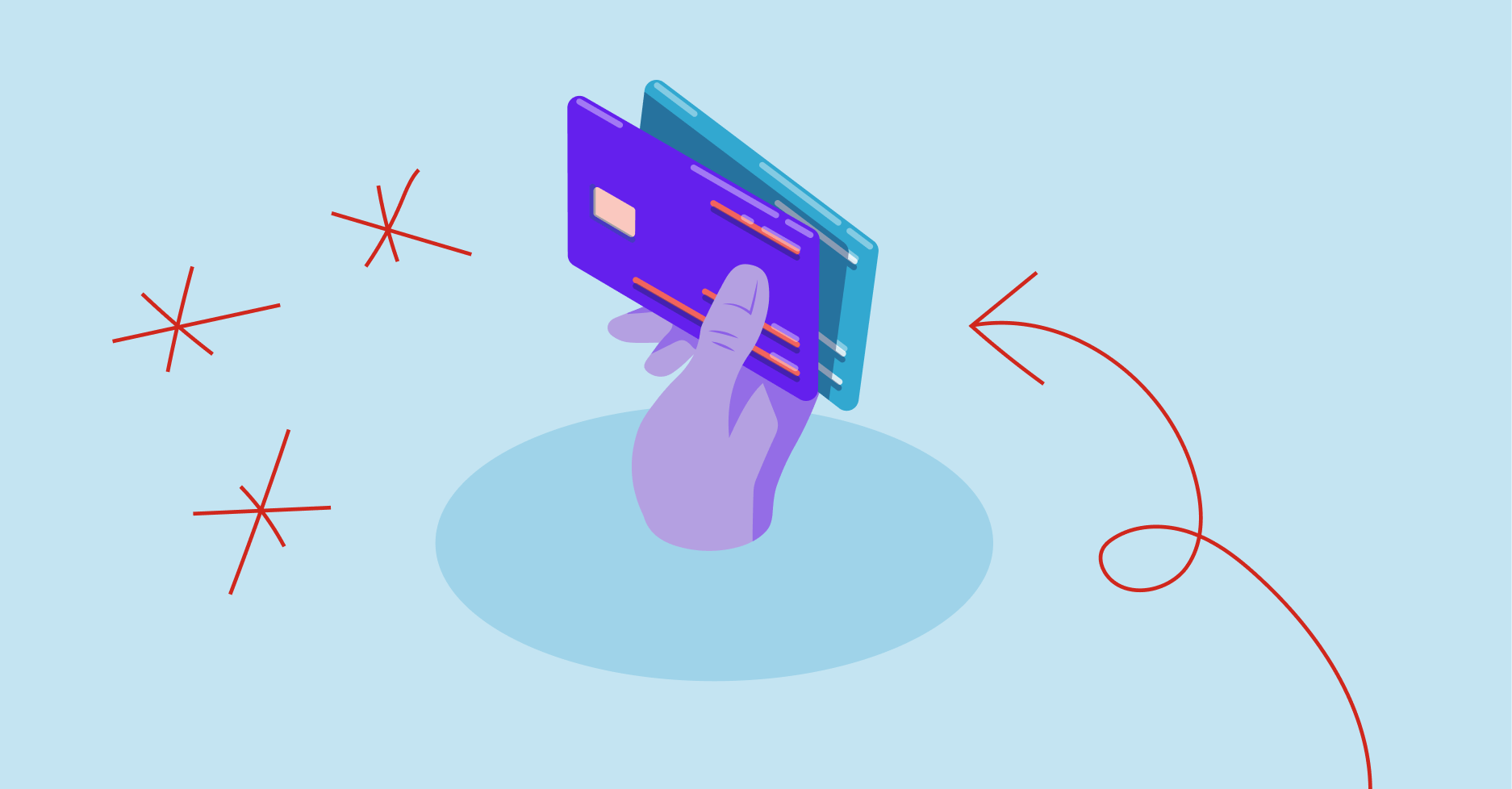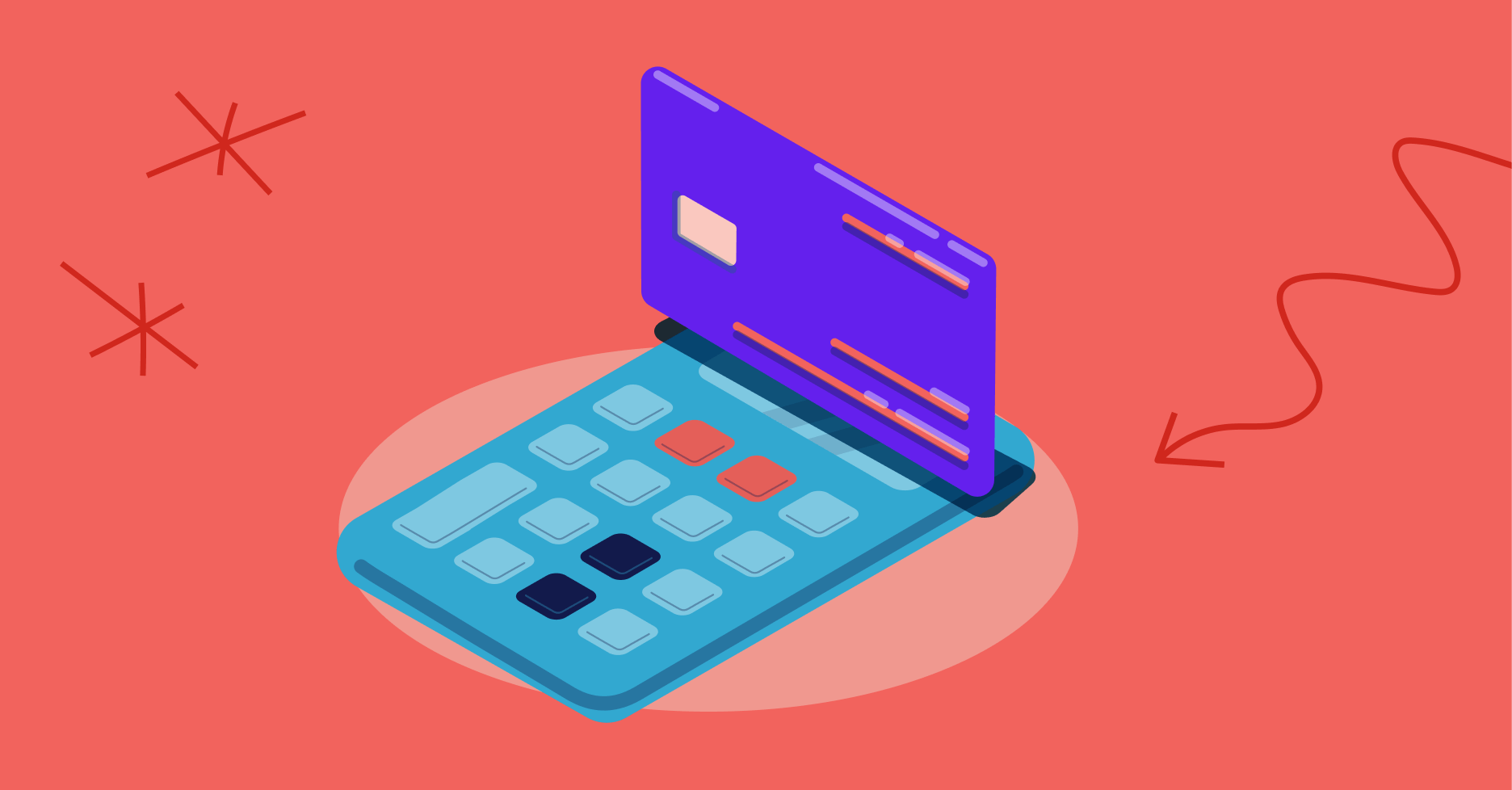Whether you’re just starting to establish credit or you’ve had credit challenges in the past and are looking to rebuild your credit, having healthy credit is an important aspect of financial wellness and independence.
By establishing credit now, you’ll likely have more choices when it comes to many of the bigger decisions and opportunities in life, from renting or buying a home to purchasing a car. We’ll cover some key areas related to building credit, including the use of credit builder loans and making on-time bill payments as a way of building credit without a credit card.

Understanding credit and its importance
So what do we mean by credit, exactly? And what is established credit? When we talk about building or establishing credit, we’re referring to showing a history of reliable, on-time payments reflected in your credit report. Having this documented credit history demonstrates healthy patterns of financial behavior that may help you qualify for loans, credit cards, and other financial opportunities. If you show that you can pay your electric bill on time, every month, for example, then a future “lender”—such as a bank that offers home mortgages—may be more likely to lend you money because you’ve proven you have a reliable track record.
Get Ahead of Paying Your Bills
Pay bills online with Wisely. Schedule payments in advance so you never miss a due date.
The length of your credit history is also taken into consideration. The longer you keep accounts open, the better. People sometimes make the decision to close a credit card, thinking it’s better to not be tempted to use it due to high interest rates. Or perhaps since they’re not actively using the card, they think it’s better to shut down the account.
But closing an account can be detrimental to your credit as it takes away from the overall length of time you’ve had accounts open. Consider this scenario:
- Let’s say you have a credit card that’s three years old while all your other accounts are less than one year old.
- You decide to close that credit card account.
- You’ve now lost the longevity of that first account.
- Your credit score will reflect the age of your accounts based on whatever accounts are still open.
The three major credit bureaus are Equifax™, Experian™, and TransUnion™. According to Experian, the length of credit history accounts for 15% of your credit score, so keeping old accounts open, even if you don’t often use them, can help your credit.
Your credit score
Once you start building credit, you’ll receive a credit score, often referred to as a FICO® score. FICO is one of the most widely used measures by lenders to determine creditworthiness. If you’ve never established credit before, it’s common to start off in the 300 to 500 range. If you’re 18 years old and have no credit history at all, your score will likely be “not available” or “not scorable” because you have no credit usage or history.
Here are the typical credit score ranges:
300–579: Poor
This means you’re considered high-risk for lenders. You may have trouble qualifying for loans or credit.
580–669: Fair
You may still be approved for credit, but probably at higher interest rates, meaning you have to pay more on your loan over time.
670–739: Good
Most lenders consider this range a sign of responsible credit use, and borrowers can often get favorable terms.
740–799: Very Good
This indicates excellent credit with low risk for lenders, often leading to lower interest rates and higher credit limits.
800+: Exceptional
This is near-perfect credit, which often results in the best available loan terms and rates.
Experian indicates that about 40% of Americans score in the good range while 30% of Americans fall into the fair or poor ranges.
Build credit with rent reporting
Wisely by ADP® partners with Self, which helps you build credit by reporting your rent payments to the credit bureaus — for free.
Your credit report
Your credit report includes a variety of personal history and financial information that helps lenders determine your creditworthiness. In addition to your payment history for things like bills and credit cards and auto loans, your credit report shows all outstanding debts, including student loan debts. It’ll also show any relevant public records, such as tax liens or bankruptcies. If you have debts that have gone into collections, this will also show on your credit report.
In the past, outstanding medical debts also had an impact on credit scoring. However, research found that medical debt on a person’s credit report was not a good indication of creditworthiness. Effective just recently, it is now prohibited for medical bills and debt to be included in credit eligibility determinations.
Every American is entitled to one free credit report per year from each of the three credit bureaus. To get your free credit report, visit AnnualCreditReport.com.
Why it helps to establish credit
Having a strong credit profile may help unlock opportunities in many areas of life, including:
Access to loans and credit lines
As previously mentioned, having a good credit history may be helpful if you go to take out a loan. The lender will look at a number of factors based on your past payment history with other lenders or vendors. Good credit history is also helpful if you have an existing loan and you wish to refinance in order to lower your monthly payment. The institution that holds your loan will examine your credit history to help decide whether or not to refinance your loan.
Lower interest rates
By establishing credit history and improving your credit score, you may be eligible for lower interest rates when applying for loans or when refinancing an existing loan. When you have a good credit score, you generally end up paying less over the life of all loans.
Ease in renting apartments
Your credit will also play a role if you apply to rent a house or apartment. The landlord may pull your credit report (this is called a “credit inquiry”), which helps determine whether you’re a safe bet as a tenant. Keep in mind, landlords want to rent to people who can pay their rent in full and on time. So, having established credit can help your application stand out. Having a strong credit profile can increase your chances of approval by a landlord.
Job opportunities
If you ever apply for a position involving financial responsibilities, some employers will review your credit report as part of the hiring process. Better to have established credit so you’re well-positioned, just in case.
Emergency financial flexibility
Imagine you have a major emergency expense that you can’t cover with your emergency savings fund. When you have established credit, you may be eligible for short-term loans to cover emergencies. Lenders will again look at your credit score and payment history to determine your eligibility.
You’re probably wondering how to get credit when you don’t have it to begin with. When you’re exploring how to start building credit for the first time, that’s when a credit-building service may come in handy.

Building credit for beginners: Three easy steps
Let’s look at a step-by-step approach to building credit for beginners. Again, this is if you wish to establish credit without using credit cards. While making timely payments on credit cards is an effective way to build credit, having credit cards also comes with the risk of overspending and paying high interest rates. To establish credit, you could first explore options like credit-building services. These services are specifically designed to help you establish credit and empower you along the way.
1. Sign up for a credit-building service
Credit-building services can be a great way to establish credit for the first time or repair credit damage. So how do they work?
Some credit-building services include a rent-reporting service as well as utilities reporting. They’ll report your rent and utility bill payments to the credit bureaus, which helps accelerate documentation of payment history, therefore helping boost your credit score. (Note: Rent payments are reported to Experian, Equifax, and TransUnion, while utility and phone bills are reported only to TransUnion.) Either way, your on-time payments can make a difference. Reporting of rent and bill payments often happens within about 72 hours. Your payment may then take up to two weeks to appear on your credit report.
In the past, the credit bureaus mainly looked at credit card and loan repayment history. Nowadays, however, not everyone has a credit card or a traditional loan to repay, but most people have at least one utility bill, such as an electric bill or a mobile phone payment.
Pro Tip
Consider enrolling in a reputable credit-building service that reports multiple bills to help maximize your credit-building efforts.
2. Apply for a credit-builder loan
Before applying for a credit-builder loan, here’s how they work:
- You choose a loan plan.
- You contribute in monthly installments to the “loan.”
- Your money gets held until you’ve “paid back” the loan.
For example, let’s say you’ve selected a 24-month loan plan at $25/month. You pay the monthly amount which then gets held in a secure bank account by the credit-building service. Every month when you make your on-time payment, your payment activity gets reported promptly to the credit bureaus, so you get credit–fast–for your responsible payment activity.
Start Building Credit
Wisely by ADP partners with Self, a credit-building service that includes rent and utilities reporting.
While you’re making “payments” each month, you’re also contributing to your own personal savings plan. After the 24-month period is up, you get your money back, minus associated fees for the service.
So if you’re wondering how to start a credit score, using one of these services can be a great way to launch your credit journey. You’ll not only be establishing credit month after month, you’ll be socking away some savings at the same time.
Pro Tip
Timely payments are crucial, as they contribute to building a positive credit history.
3. Pay bills on time and track progress
When you’re starting credit, keep in mind that making on-time payments is the most significant factor in your credit score. In fact, MyFICO indicates that it accounts for 35% of your score. So when you do sign up for a credit-building service, it’s important to pay your monthly payment on time to avoid late fees and penalties. Try scheduling payments in advance or using reminders to ensure your payments are made on time, every time. Then use your free credit reports to monitor your credit and watch your progress!
By following these three simple steps, you’ll not only build credit but also help create a strong financial foundation for future opportunities.
Pro Tip
Paying bills consistently on time not only helps with credit building but also supports overall financial wellness.
Maintaining and monitoring your credit
Credit monitoring and maintenance is not a “once and done” thing. Your credit score will go up and down, naturally fluctuating, sometimes within days or weeks, or over months. This is completely normal but also a good reason to keep an eye on it. If you notice a significant drop in your credit score, you can immediately inspect what caused the drop and determine whether there’s an error in the reporting.
Does checking my credit report hurt my score?
Not at all! When you check your own credit report, by requesting your free annual report, this is considered a “soft inquiry.” It has no impact on your credit score, unlike when a lender inquires about your credit, which may temporarily cause a decrease in your score.
If the reporting is accurate, you can take note of what caused the drop in credit score and strategize for improvement, such as better management of bill payments and other financial obligations you might have. Staying on top of your credit is a healthy financial behavior that contributes to long-term financial stability.
Staying on top of your credit is a sign of healthy financial behavior and contributes to long-term financial stability.
Monitor your credit regularly
How often you monitor your credit depends on your goals and comfort level. By checking it regularly (for example, once a month), you can be sure you’re seeing payment activity accurately reported or you can catch when there’s an error. This gives you a chance to dispute the issue and get it fixed before it does ongoing damage to your credit score. If you’re applying for a loan or you suspect fraud, it pays to check your credit more often, like weekly or biweekly.
Remember: You’re entitled to one free credit report per year from each of the credit bureaus: Equifax, Experian and TransUnion.
Practice responsible financial habits
Again, establishing credit is integral to long-term financial stability. Be sure to implement and stick to healthy habits, which may include:
- Paying bills online, and on time
- Using early direct deposit to help you better manage your money
- Creating an emergency savings fund
- Using a prepaid debit card so you can only spend what’s on the card
- Keeping card balances low (if you have credit cards)
- Avoiding opening new credit accounts
Get Paid Up to Two Days Early with Wisely
Life doesn’t always wait until payday. Nor should you. Whether it’s a bill coming due or something you want ahead of the weekend, Wisely can get you access to your pay up to 2 days early- at no cost to you.
If you do have credit cards, keeping card balances low is a way to show a healthy credit utilization ratio. This means that you’re eligible for a certain amount of credit but don’t actually use the max amount available.
In general, 30% or lower usage across all of your accounts is considered a healthy credit utilization ratio. While keeping your utilization under 30% is good, 10% or less is even better for achieving an optimal credit score.
It’s important to note that when you establish and maintain a healthy credit utilization ratio, you may also receive offers for higher credit limits. But this doesn’t mean you should start spending more! In fact, you may want to do exactly the opposite: Allow your credit limits to increase but choose not to use any of the increased amount of credit. By doing this, you’re showing that you’re not relying on credit. This can help increase your credit score and improve your creditworthiness to lenders.
Leveraging Wisely for financial management
Use Wisely to build better financial habits.
- Track spending and manage finances with the myWisely® app.
- Avoid late fees with online bill pay.
- Build your emergency fund with Savings Envelope.
Benefit from our rewards program.

By The Wisely Team
Ready to build smarter financial habits? Get started with a Wisely card.

Footnotes
This content is for informational purposes only and may have been derived, with permission, from a third party. While we believe it to be accurate as of the date of publication, it does not constitute the rendering of legal, accounting, tax, or investment advice or other professional services by ADP and it is being provided without any warranty whatsoever. Please consult with appropriate professionals related to your individual circumstances.
This optional offer/service is not a Fifth Third Bank, N.A., Member FDIC, Mastercard or Visa product or service, nor does Fifth Third Bank, Mastercard or Visa endorse this offer.
ADP is not responsible for third-party website’s content, availability or security. All offers are provided by independent third parties with whom ADP may have a referral relationship, and ADP may receive compensation from such third parties. ADP is not responsible for such third party’s products or services.
The Wisely Pay Visa® is issued by Fifth Third Bank, N.A., Member FDIC, pursuant to a license from Visa U.S.A. Inc. The Wisely Pay Mastercard® is issued by Fifth Third Bank, N.A., Member FDIC, pursuant to license by Mastercard International Incorporated. The Wisely Direct Mastercard is issued by Fifth Third Bank, N.A., Member FDIC. ADP is a registered ISO of Fifth Third Bank, N.A. The Wisely Pay Visa card can be used everywhere Visa debit cards are accepted. Visa and the Visa logo are registered trademarks of Visa International Service Association. The Wisely Pay Mastercard and Wisely Direct Mastercard can be used where debit Mastercard is accepted. Mastercard and the circles design are registered trademarks of Mastercard International Incorporated.
ADP, the ADP logo, Wisely, myWisely, and the Wisely logo are registered trademarks of ADP, Inc.
Copyright © 2026 ADP, Inc. All rights reserved.
By clicking 'Leave', you will exit myWisely and be directed to a third party website which may have different privacy and security settings.




